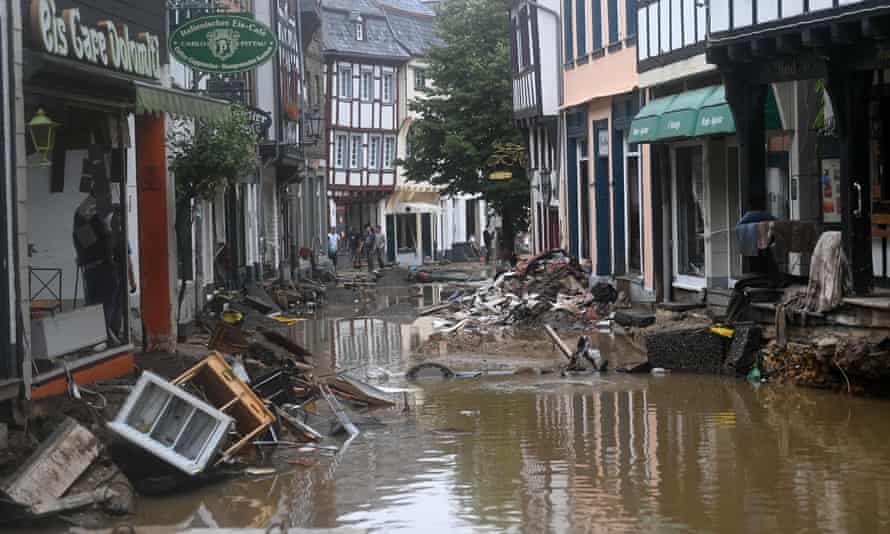Extract from The Guardian
Scientists believe climate disruption will bring more extreme weather, and humans are making things worse.

Last modified on Sat 17 Jul 2021 18.53 AEST
Are the European floods linked to the climate crisis?
Almost certainly. Scientists have long predicted climate disruption will lead to more extreme weather, such as heatwaves, droughts and floods. Human emissions from engine exhaust fumes, forest burning and other activities are heating the planet. As the atmosphere gets warmer it holds more moisture which brings more rain. All the places that recently experienced flooding – Germany, Belgium, the Netherlands, London, Edinburgh, Tokyo and elsewhere – might have had heavy summer rain even without the climate crisis, but the deluges were unlikely to have been as intense.
But there have always been floods and heatwaves. What is the evidence that humans are making them worse?
First, more records are being broken more often; the world’s seven hottest years in recorded history have all come since 2014. Second, scientists can now use statistical analysis and computer models to calculate how much more likely particular weather events have become as a result of the extra stress that humans have put on the climate system. For example, human emissions made the deadly “heat dome” in Canada and North America last month at least 150 times more likely and the prolonged heatwave in Siberia last year more than 600 times more probable.
Richard Betts, the head of climate impacts research at the Met Office Hadley Centre, says such calculations take away the argument that “extreme weather happens anyway, so we don’t need to worry about it”. There has not yet been an attribution study for the latest floods in Europe because the analysis takes several days.
Some reports suggest the floods may be linked to a disruption of the jet stream. Is that confirmed?
Will the UK have more floods and heatwaves?
Yes. The flash floods in London, Edinburgh and elsewhere last week were unusual compared with the past, but they will be more common in future. Over the course of this century, the Met Office Hadley Centre predicts “warmer, wetter winters and hotter, drier summers along with an increase in the frequency and intensity of extremes”. If emissions are not cut, it says severe heatwaves, such as that of 2018, would be likely every other year by 2050. Although summers would generally be drier, there would be an increase in intensity of heavy rainfalls.
Why do so many news reports about extreme weather underplay the climate connection?
In some media organisations, this appears to be part of a deliberate strategy to undermine climate science and the political impetus to reduce emissions. Habit also plays a part. For decades, journalists have depicted heatwaves as a good news story to be casually illustrated with pictures of sunbathers, ice creams and swimming pools. Excess caution can also make reporters timid about making the link with the climate crisis. On Wednesday, the climate scientist Ed Hawkins took the BBC to task for this and for failing to keep up with the science. From now on, he suggested journalists use the phrase: “Experts say that climate change is already increasing the frequency of extreme weather events, and many single events have been shown to have been made worse by global warming.”
No comments:
Post a Comment